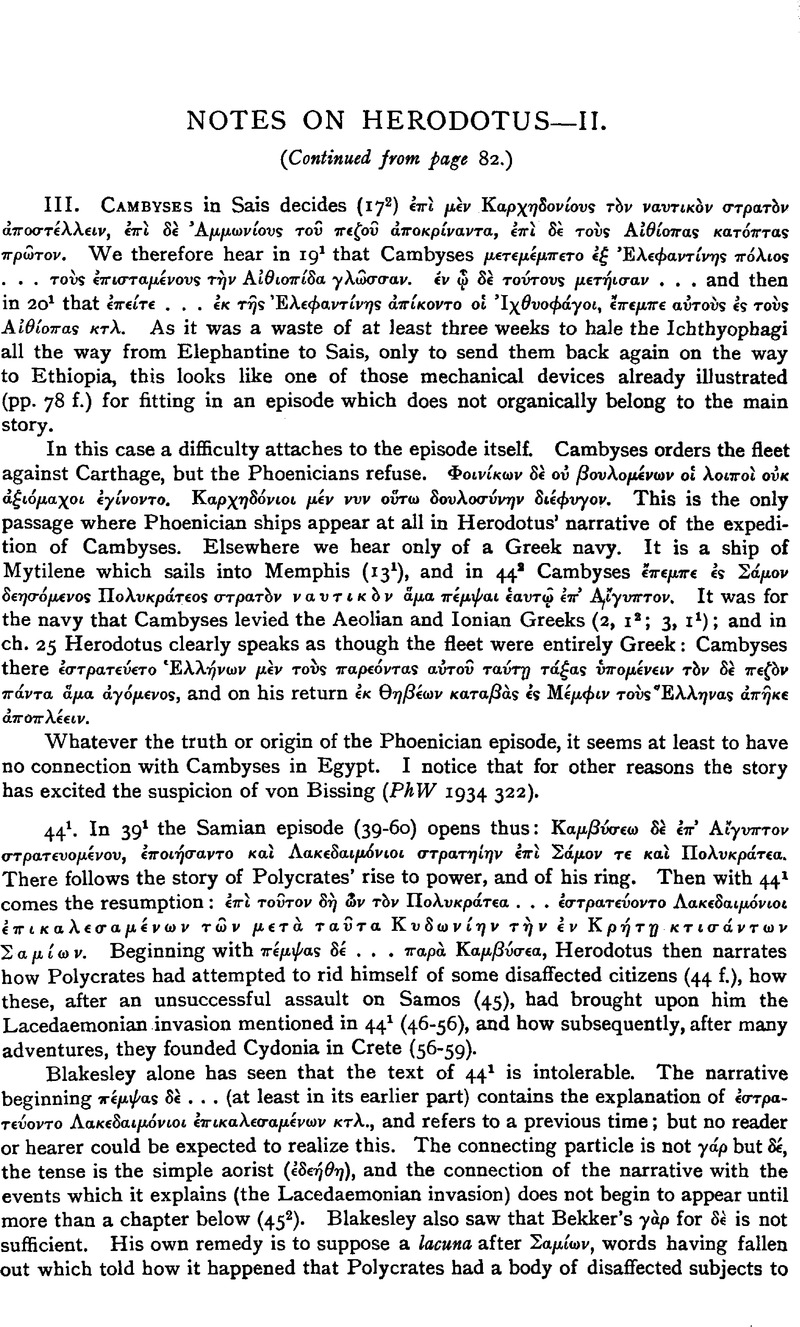Article contents
Notes on Herodotus—II
Published online by Cambridge University Press: 11 February 2009
Abstract

- Type
- Other
- Information
- Copyright
- Copyright © The Classical Association 1935
References
page 154 note * It is noteworthy that, though Otanes' exceptional position is a fact, the explanation given of it in ch. 83 cannot be right: see HowWells I. 279.
page 154 note † Lidd. and Sc. alone have qualms, and remark (unintelligibly): ‘thoughπάѵτα may be neut. Adj. after σ.’ Presumably they mean ‘neut. acc.,' σѵμβεβάѵαɩ being transitive. But the sense is then still open to the above objections.
page 155 note * Mr. J. D. Denniston plausibly suggests that the truth may be πάѵτας.
page 156 note * This meaning, as well as ‘linden tree,’ occurs in Hellenistic Greek: Herodotus is the only writer before Theophrastus who seems to use the word.
page 157 note * See the list in How-Wells I. 55, to which may be added Ar. Av. 1269˜4, 334.
page 157 note † Diog. L. 1, 101 παρέσχε δ (‘ Αѵάχαρσɩς) кαɩ ϕορμѵ παροɩμίας δɩ τ παρρησɩαστής εἲαɩ, τѵ π Σкѵθѵ, must be understood as a mistaken explanation of the name by reference to the one Scythian personality who was well known—mistaken, because if any coarse language was called Scythian, there was no reason to designate this particular expression ή π Σкѵθѵ ῥσɩς (def. art.). This observation also disposes of Blakesley's note.
page 158 note * So the translators of Herodotus, Schweighauser (Lex. Hdt. II 98b), and Lidd. and Sc.
page 162 note * Except Macan, who saw the difficulty, but apparently ascribes it to muddled thinking on Herodotus' part
page 163 note * Themistocles' secret message to the king (1103), that he σχε τοὐς Ελληѵας τς ѵέας βοѵλομέѵοѵς δɩώεɩѵ кαί τς ѵ Ελλήσπѵτψ ɣεϕύρας λύεɩѵ is not inconsistent with this, nor in any case was Themistocles, in his dealings with the Persians, always careful to be strictly accurate.
- 4
- Cited by




